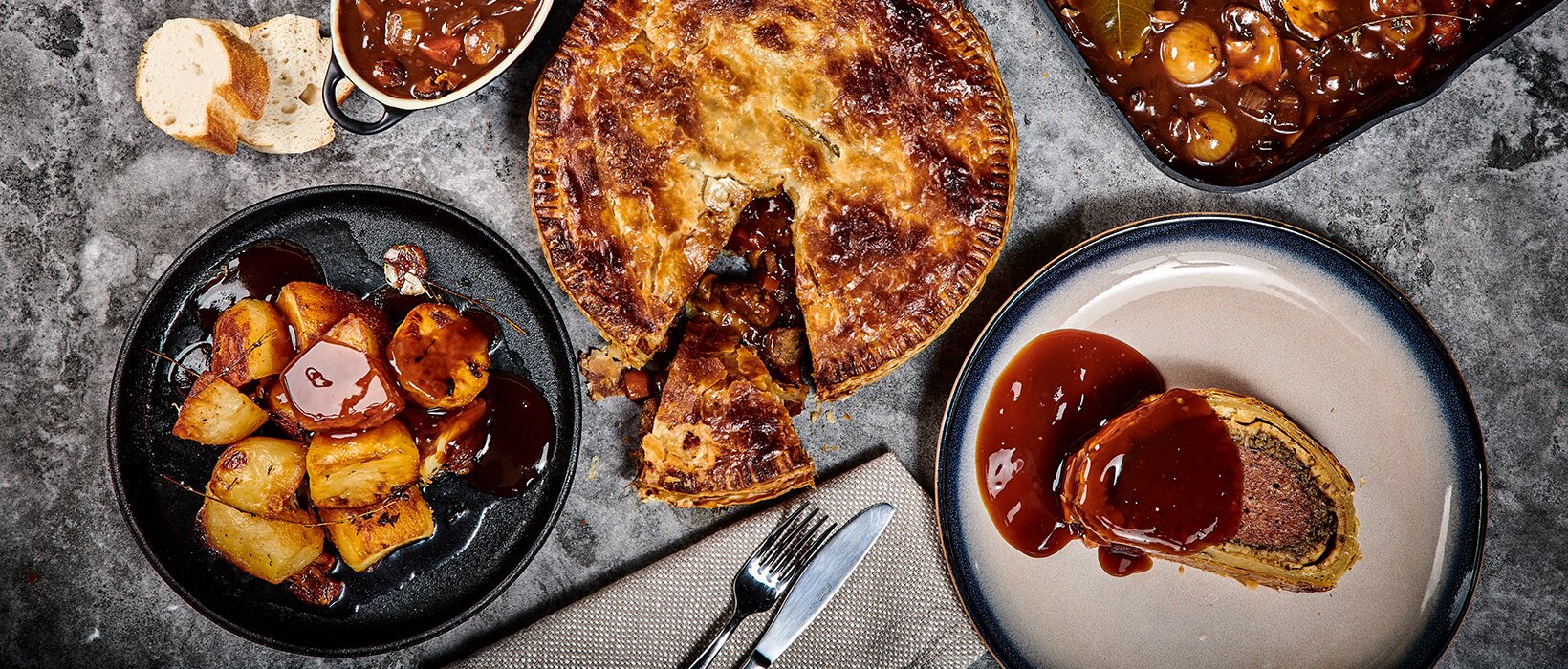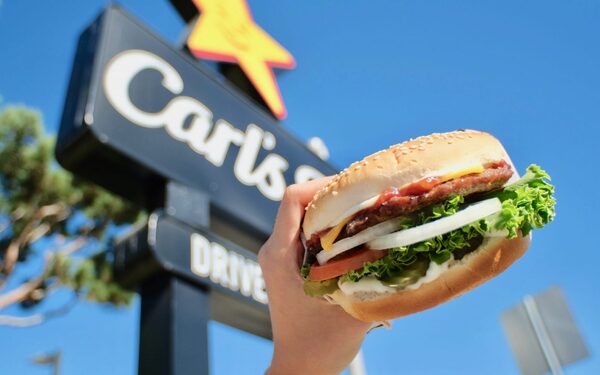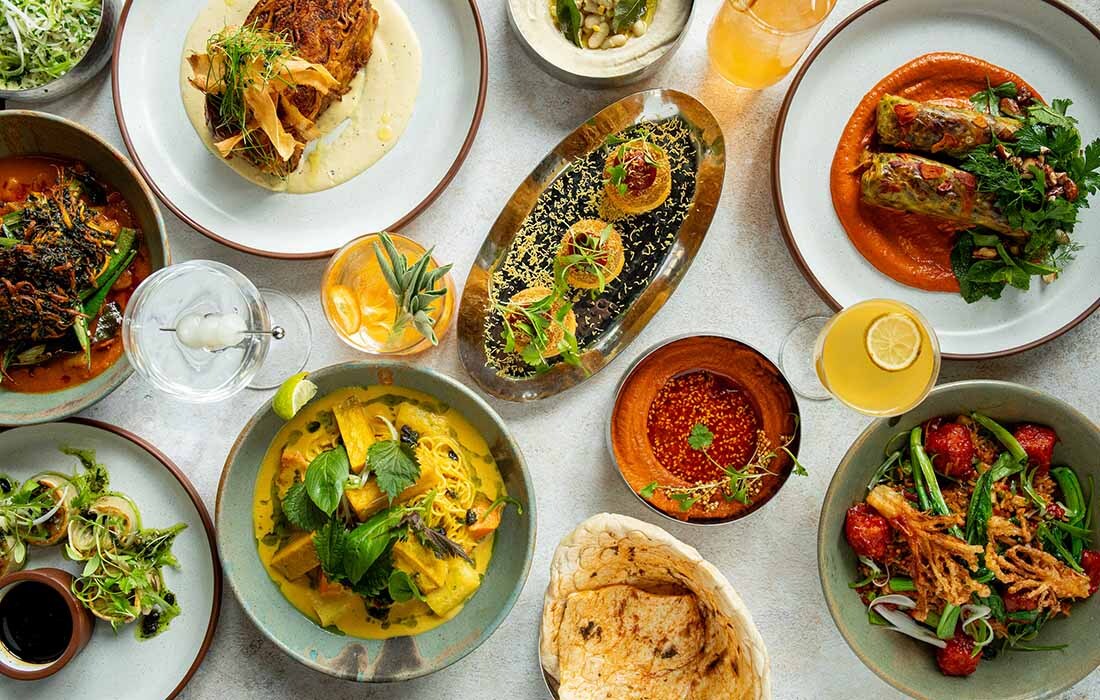Meat alternatives have seen huge advancements
With texture-identical cuts and 3D-printed joints, meat substitutes are advancing fast. Here are the next level plant-based foods
The belief that plant-based diets contribute to planetary, personal and animal health and welfare is making its mark on the nation’s eateries.
Brady Collins, co-chief executive at Arley Foods, says: “The biggest change [in 2021] was the increase in choice for plant-based options on menus. Historically, there may have been one or two options on many menus and, in some cases, none at all. Now it is the exception to find a restaurant that doesn’t have a choice of plant-based dishes and many restaurants and pubs now have a whole section of their menus dedicated to plant based.”
Many cuisines offer rich traditions of vegan- and vegetarian-friendly dishes and many plants – think jackfruit, mushrooms, tempeh, seitan (wheat protein), cauliflower, beetroot, nuts and legumes – are finding favour as meat alternatives. With full-time vegetarians and vegans representing just 6% and 3% of the population respectively, it’s primarily meat-reducing flexitarians driving the plant-based boom – research by Meatless Farm and One Poll found that 43% of Britons want to eat more plant-based food in 2022, versus just 9% in 2019. So it’s unsurprising that so much new product development focuses on perfecting foods mimicking the taste, texture and appearance of meat and dairy.
Arley Foods has launched six gourmet meat alternatives based on sustainably-sourced, non-GM soy that Collins says overcome the biggest challenge with vegan mince-based foods: “Meat-free mince has a tendency to turn to mush, which isn’t great when you’re expecting to bite into a tender burger and get paste instead,” says Collins.
The manufacturing method and blending techniques ensure Arley’s new minced beef remains firm when cooked in sauces or for long periods.
Photo finish
Redefine Meat of Israel has been wowing fine-dining chefs (400 in the UK alone) at blind tastings since the November launch of its 3D-printed New-Meat. It claims to have cracked the “holy grail of the plant-based meat industry” by creating whole cuts of meat that replicate animal muscle tissues to offer the same flavour, taste, and texture. Fans include a “mind-blown” Marco Pierre White and Michelin- starred Dutch chef and TV personality Ron Blaauw, who extols New-Meat’s chewiness and mouthfeel as a “game changer”.
Redefine’s Meat Matrix Additive Manufacturing technology transforms ingredients such as soy and pea protein, chickpeas, beetroot and nutritional yeasts into firm, juicy beef and lamb shanks that can be served as steaks, roasts or grills. Ultimately it plans to offer “every single cut that a cow does”.
“By intertwining plant-based Alt-Blood, Alt-Fat and Alt-Muscle formulations layer by layer during the printing process at a voxel-level, this high level of control allows it to recreate the mouth-watering textures of meat previously not possible,” Redefine explains. Its launch range, which includes culinary-grade minced products such as ground beef, sausages, burgers and lamb kebabs – is available via Classic Fine Foods from this month.
Meatless Farm has been consolidating its position with new staple classics and innovative, on-trend dishes. Recent research with Brakes found customers most wanted to see plant-based versions of lasagne, spaghetti Bolognese, burgers and roast dinners and its new pea-protein-based chicken breast is designed to be served whole in a Sunday roast or shredded, says managing director Michael Hunter.
Its new quick-to-cook Asian snacking range and pastry slices (including a katsu curry) answer the demand for convenience and speed highlighted during the pandemic.
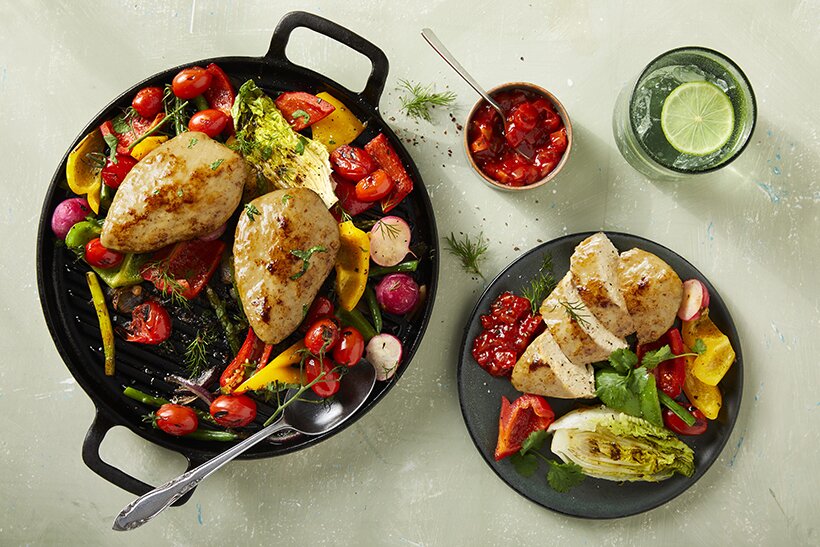
The group has also been devising plant-based alternatives for operators, such as DF tacos, Barburrito, Pret A Manger, Fridays and London’s Alchemist cocktail bar and restaurant, where it has helped create a menu that is 58% vegetarian and 38% vegan with offerings such as Korean or salt-and-pepper chicken bites and cheese and kimchi toasties with bacon bits.
Plant pioneer Quorn’s line-up of mycoprotein-based meat replacements can serve as both finished product or ingredient. Recent additions include dippers and sausages reformulated to be vegan-friendly and meet child salt guidelines, beef pieces that are ideal for stir-fries, pies and curries, and a vegan fillet to serve as a burger or in street-food-inspired dishes, salads and Buddha bowls.
Vegan umami
Flavour is what adds the wow factor to any dish and in April the Simple Root unveiled a quartet of potato-powered cooking sauces that UK chief executive Louise Wymer describes as a “fresh, plant-based and better-for-you” gateway to popular dishes.
A patented technique developed in partnership with McCain Foods transforms highly sustainable potatoes and other root vegetables such as parsnips and sweet potato into creamy, ready-to use sauces that are low in fat, sugar and salt and free from artificial additives and allergens. The pesto, béchamel, truffle and cheese and (nut-free) spicy satay style cooking sauces, distributed by the Cress Co, will be joined by plant-based dips, cheeses and desserts over the next 12 months.
Macphie’s new vegan ambient demi-glace made from mushrooms, vegetable stock and tomato serves up a rich, glossy gravy that insights and marketing manager Kirsty Matthews says works equally well with meat- and plant-based dishes. Also new is an alcohol- and fruit-stable cream alternative that can be piped, poured or whipped to three times its volume for use in cakes, desserts and espuma guns.
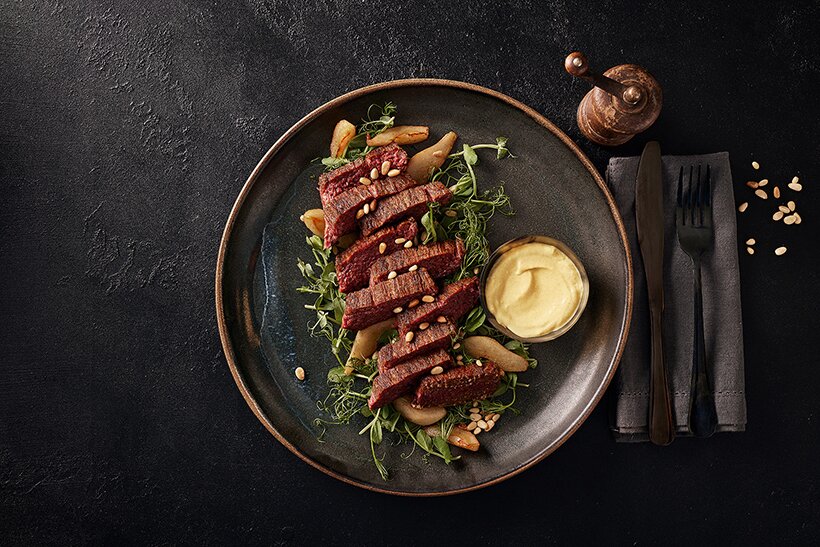
New ideas in vegan ice-cream
Vegan ice-cream is experiencing triple the annual growth rate of its dairy counterparts (13.7% versus 4.1%, according to Allied Market Research) but still lags behind alternative milks in market penetration (5% versus 33%) observes Ben McCabe, marketing director at Beau’s Gelato. “This offers a huge untapped market of customers that are being under-served right now,” he continues, adding, “What is on offer must be an evolution, not an alternative, to what is already out there.”
Beau’s creamy Italian-style vegan gelatos (winners of seven Great Taste awards) are based on cashew nuts and oats for some foodservice lines. Viewing quality and familiarity as the recipe for mass market appeal, Beaus’s studied artisanal gelato-making in Bologna before launch and sticks with classic British and Italian flavours, such as pistachio, strawberry, vanilla and mint chocolate chip in its foodservice range.
As flexitarianism becomes mainstream, a token risotto will no longer cut the mustard for choice-hungry meat reducers, but the ever-expanding range of options offers an opportunity rather than a challenge for operators, advises Collins at Arley: “Embrace veg and vegan food, don’t see it as something you have to do, but something you can excel at and be a destination for.”
Ian Nottage head of food development at Sysco Speciality Group, looks to the US to predict where the plant-based sector is heading: “I think that one of the changes we will see – and that’s already been in America for a while – is plant-centric as opposed to plant-exclusive, where instead of starting with an 8oz steak and 4oz of veg, it’s more about the vegetables with the meat or fish acting as a garnish.”
Canteen culture
Contract caterer BaxterStorey has responded to rising demand for vegan options across its 625 sites by partnering with plant-based chef Kirk Haworth and introducing Food EQ, a culture shift created by its Chef Academy apprentices to offer a more balanced, sustainable and healthy diet that celebrates grains, pulses and vegetables as the protein-providing stars of the plate.
“We believe that by limiting the use of synthetic meat alternatives you can have a great tasting plant-based dish without the need for it to taste like meat,” explains BaxterStorey head of food Dan Wilson.
Options such as pulled jackfruit, tofu, legumes and mushrooms are proving popular at its Warner Music site, where 60% of hot drinks are now made with milk alternatives. Plant-based dishes represented 33% of sales at BaxterStorey’s Social Co site during Veganuary and remain strong at 28%.
The UK’s first vegan school kitchen has proved so popular that it is attracting new pupils to Our Lady of Sion school in Worthing, West Sussex, since its January launch by Plant Based School Kitchens, a new venture from Vegan Street Food Company founders Gary and Anna Hardley.
“Ethical eating and farming are vital to the longevity of the planet and feeding children in schools has too often been about profit rather than nutrition,” explained Gary. Its Vegan Society-backed offer includes toad in the hole with roast potatoes, carrots and swede, teriyaki broccoli tofu with rice noodles and barbecue jackfruit jackets with salad.
Dairy-free milk
While one in three Brits now choose dairy-free milk, the often unique tastes of plant milk can be a barrier, according to Mighty co-founder Nick Watkins. The supplier believes it has “just upped the game” with its new M.lkology range. Its Plantech process harnesses precise biomass fermentation to convert yellow split peas and oats into what Watkins describes as “a plant-based milk that finally tastes, looks and feels like dairy milk”, with an added viscosity that allows its Barista variety to foam and froth like dairy.
Fermentation also underlies the health and taste credentials of the UK’s first plant-based yogurt range dedicated to promoting gut health launched last month by the Coconut Collab. Its plain and strawberry Gut Health, Cultured Coconut Yog range has a thick texture with a mild, creamy taste that avoids the tanginess of other gut health yogurts. By improving digestive health, the company claims the yogurts’ live cultures, prebiotic fibre and vitamins D, B6, B12 can also enhance the immune system and release of ‘happy hormone’ serotonin.
Suppliers
Arley’s Foods www.arleyfoods.com
Beau’s Gelato beausgelato.com
The Coconut Collab coconutco.co.uk
Macphie www.macphie.com
Meatless Farm www.meatlessfarm.com
Mighty www.mightydrinks.com
Quorn www.quornfoodservice.co.uk
Redefine Meat www.redefinemeat.com
The Simple Root www.thesimpleroot.co.uk
Sysco Speciality Group syscospecialitygroup.co.uk



